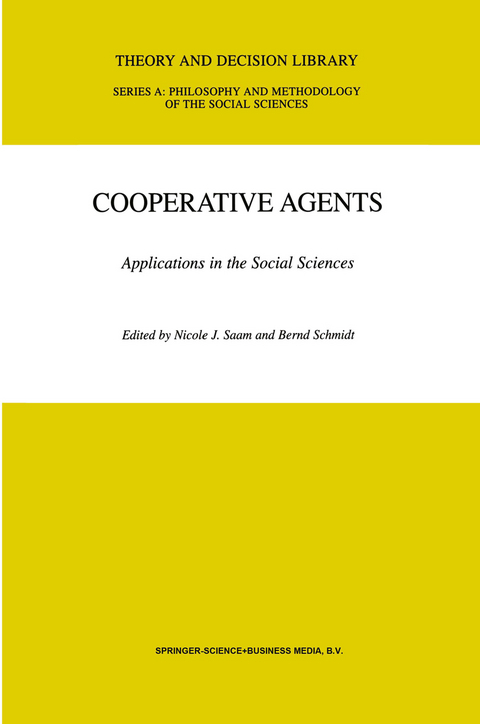
Cooperative Agents
Springer (Verlag)
978-90-481-5902-4 (ISBN)
Agent-based modelling on a computer appears to have a special role to play in the development of social science. It offers a means of discovering general and applicable social theory, and grounding it in precise assumptions and derivations, whilst addressing those elements of individual cognition that are central to human society. However, there are important questions to be asked and difficulties to overcome in achieving this potential. What differentiates agent-based modelling from traditional computer modelling? Which model types should be used under which circumstances? If it is appropriate to use a complex model, how can it be validated? Is social simulation research to adopt a realist epistemology, or can it operate within a social constructionist framework? What are the sociological concepts of norms and norm processing that could either be used for planned implementation or for identifying equivalents of social norms among co-operative agents? Can sustainability be achieved more easily in a hierarchical agent society than in a society of isolated agents? What examples are there of hybrid forms of interaction between humans and artificial agents? These are some of the sociological questions that are addressed.
1 Introduction.- Designing co-operative agents.- 2 What are Agents and what are they for?.- 3 Agent models of Software Technology.- 4 Social norms for co-operative agents.- Agent-based social simulation.- 5 Can agent-based modelling REALLY be useful?.- 6 Fraud, Exchange and Cooperation.- 7 Hunting the unicorn. An exploration of the simulation of small group leadership.- 8 /Social Influence among Agents: The Simulation of Social Psychological Theories.- Hybrid forms of interaction between humans and artificial agents.- 9 Enrolling Software Agents in Human Organizations. The Exploration of Hybrid Organizations within the Socionics Research Program.- 10 Hybrid Learning Communities in Agent-based Intelligent Distributed Learning Environments — An Application for Socionics’ Research.- 11/Agent-Based Modeling and Simulation for Hospital Management.- Author Index.
| Erscheint lt. Verlag | 15.12.2010 |
|---|---|
| Reihe/Serie | Theory and Decision Library A ; 32 |
| Zusatzinfo | VII, 216 p. |
| Verlagsort | Dordrecht |
| Sprache | englisch |
| Maße | 155 x 235 mm |
| Themenwelt | Geisteswissenschaften ► Psychologie ► Psychoanalyse / Tiefenpsychologie |
| Geisteswissenschaften ► Psychologie ► Sozialpsychologie | |
| Informatik ► Grafik / Design ► Digitale Bildverarbeitung | |
| Informatik ► Theorie / Studium ► Künstliche Intelligenz / Robotik | |
| Mathematik / Informatik ► Mathematik ► Angewandte Mathematik | |
| Sozialwissenschaften ► Soziologie | |
| ISBN-10 | 90-481-5902-4 / 9048159024 |
| ISBN-13 | 978-90-481-5902-4 / 9789048159024 |
| Zustand | Neuware |
| Haben Sie eine Frage zum Produkt? |
aus dem Bereich


